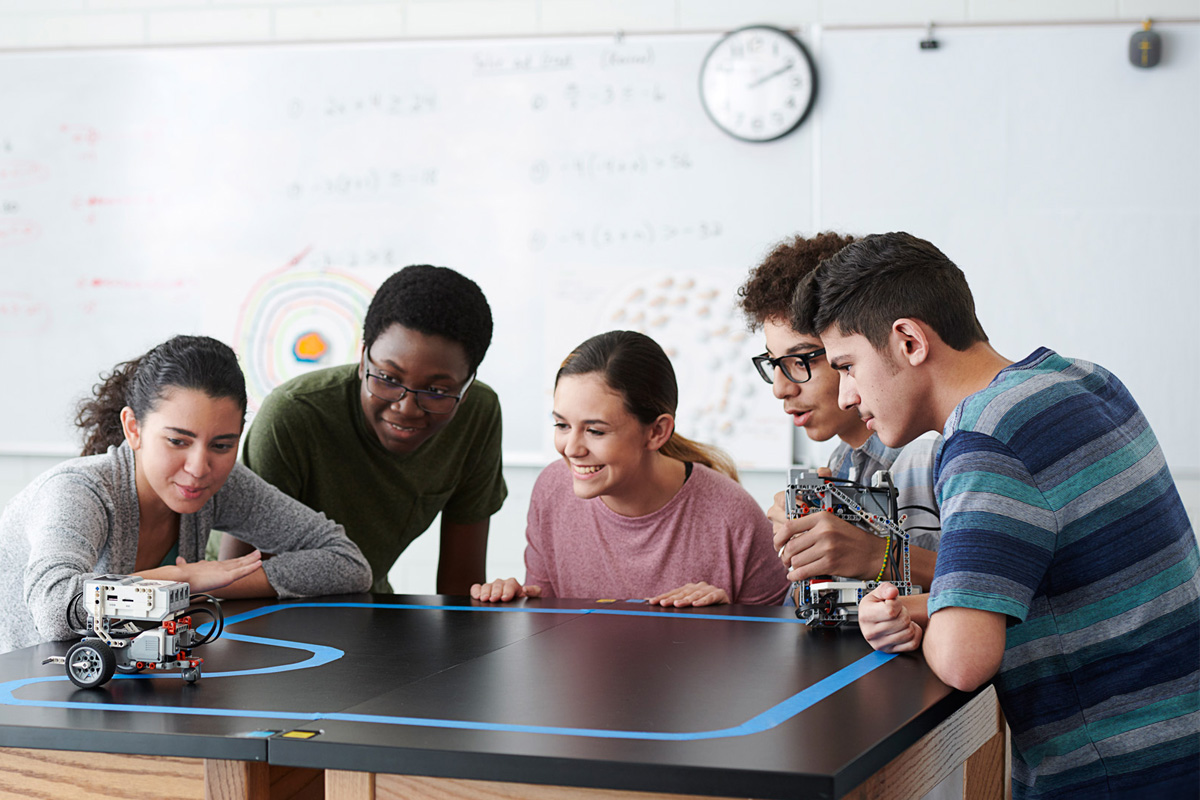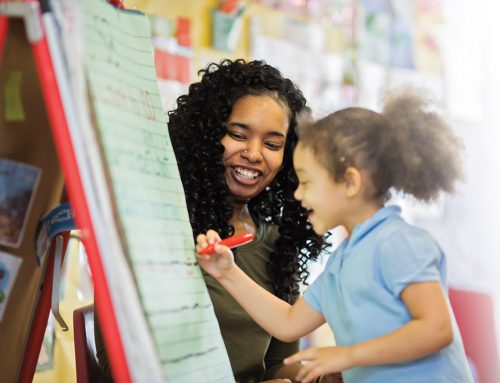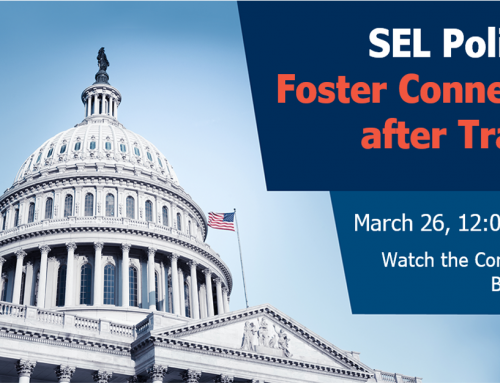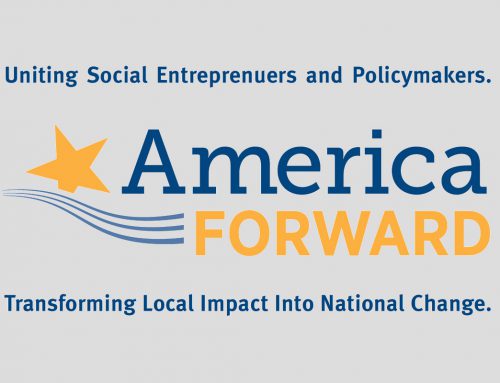Yesterday, America Forward hosted the first in a series of conversations with policymakers and education leaders about the critical importance of whole-learner approaches to education. Moderated by America Forward Executive Director Deborah Smolover, and featuring Congresswoman Ayanna Pressley (MA-07), Dr. Desmond K. Blackburn, CEO of America Forward Coalition member New Teacher Center, and Dr. Robert Jagers, Vice President of Research at Coalition member CASEL, the discussion highlighted the role of Federal policy in supporting more holistic, learner-centered approaches to healthy learning and development, and how strong partners can help build capacity and foster an intentional focus on the wide range of skills students need to succeed.
COVID-19 has deepened long-standing inequities and highlighted the critical need for holistic approaches to education that help every student develop the physical, social, emotional, cognitive, and creative skills they need to thrive. Embracing and expanding whole-learner approaches is a critical step in advancing racial and socioeconomic justice, and to expanding educational opportunity for every student.
While addressing the role the Federal government can play in elevating whole-learner approaches in education systems across the country, Congresswoman Pressley used her own childhood to exemplify both the multiple, intersecting conditions that create barriers to learning, and how to hold space for the brilliance, innovation, and joy of all young people. She touched on the implications of trauma created and compounded by the COVID-19 pandemic, especially for students and families already struggling to navigate economic, physical, social and emotional hardship; and she explained how her recent legislation, the Services and Trauma-informed Research of Outcomes in Neighborhoods Grants (STRONG) Support for Children Act, will “support local Public Health Departments in addressing trauma and ensure that programming is conveniently located and accessible to all children and families.”
Congresswoman Pressley also offered an approach to legislating that mirrors the comprehensive nature of whole-learner approaches: “The reality is that no one lives in a silo. We live in intersectionality, we live in nuance, we live in complexity, so I really strive to make sure that I’m never single-issuing a constituency or a community, but that we are looking holistically. And the way we seek to develop responsive legislation that’s intersectional and that is effective, again is by centering the voices of those closest to the issue. To make sure that we are seeing the issue in totality.”
Taking a holistic view of healthy learning and development is at the heart of whole-learner approaches to education. We know that, in order to succeed, every learner needs a diversity of meaningful, engaging learning experiences – grounded in strong developmental relationships and safe environments – that help them develop the breadth of physical, social, emotional, cognitive, and creative skills they need to succeed.
Drs. Blackburn and Jagers echoed the critical importance of intentional, holistic efforts to address deeply entrenched inequities. “There were inequities and pieces of ineffectiveness that existed, that were with us pre-COVID. Those items have been exacerbated over the last 6-8 months,” said Dr. Blackburn.
Organizations like New Teacher Center and CASEL can be critical partners to schools, educators, and policymakers in the understanding, development, and implementation of comprehensive, whole-learner approaches that help students meet and overcome the challenges they face.
New Teacher Center brings together a focus on high- quality curriculum and instruction, social emotional learning and support for children, and a focus on the entire child in the context of their environment, said Dr. Blackburn, and gets “rid of this whole notion of ‘Monday is curriculum workshop day for the teacher, Tuesday is whole child workshop day for the teacher, Thursday is SEL’ — no. Separate but equal is not only a failed governance strategy, it’s also a failed professional development strategy. We believe in coherence among all those factors – high quality curriculum, SEL support services, and a focus on the whole child, all happening in unison.”
At CASEL, said Dr. Jagers, we “have been advocating for this more holistic approach to human development more generally since our inception…we imagine, and want to imagine with others, ways in which we can provide the types of educational opportunities that address the holistic needs of young people. We approach it via social-emotional learning, and understand that social-emotional learning is not an add-on or a separate enterprise…but has to be integrated into the entire educational experience that we attempt to foster and provide for our young people.”
By bringing together policymakers like Rep. Pressley and experts like Dr. Blackburn and Dr. Jagers, America Forward is continuing the work begun earlier this year with the official launch of the Advancing Whole Learner Education initiative – to advocate for policies that will meaningfully support high-quality whole-learner approaches to education that foster the development of the breadth of skills every young person needs to thrive, both in school and in life.
You can find a full recording of yesterday’s conversation here, and be sure to check out our upcoming whole-learner conversations:
- On Friday, October 23, featuringWhole-Learner Education Fireside Chats with Rep. Chrissy Houlahan (PA-06), Miles Wilson, President & CEO, EducationWorks; Dr. Crystal Loose, Assistant Professor of Education, West Chester University; and Virgil Sheppard, National School Partnerships Senior Director, City Year, Inc;
- On Tuesday, October 27, with and Rep. Dan Kildee (MI-05), Peter Spadafore, Deputy Executive Director for External Relations, Michigan Association of Superintendents & Administrators; Amy Wassmann, Whole Child Programs Director, Saginaw ISD; and Adrián Pedroza, National Director of Strategic Partnerships, Abriendo Puertas/Opening Doors.






